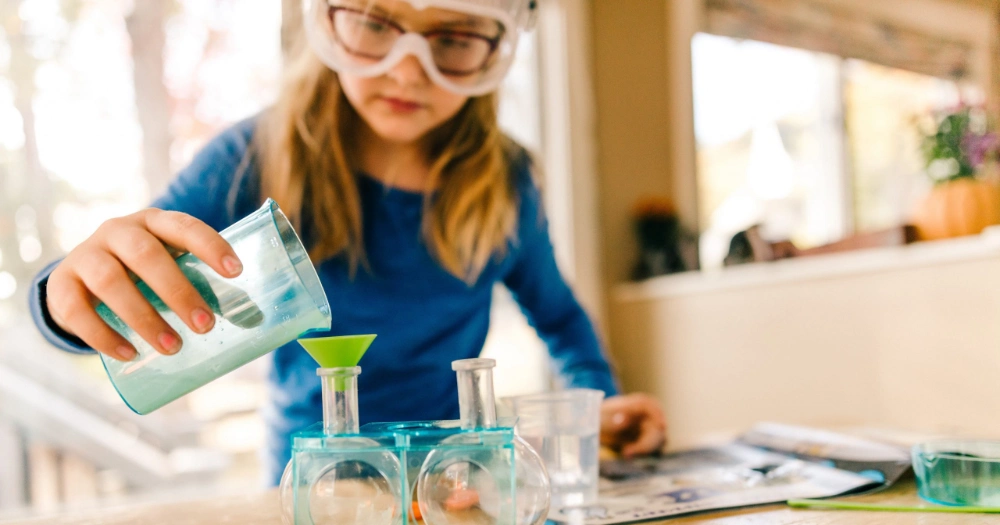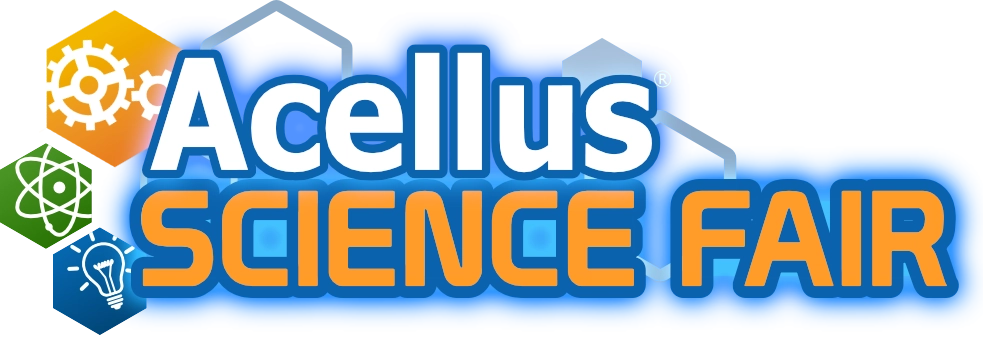

Join students from around the world in the Acellus Science Fair!

Conduct fun, engaging, & educational scientific research.

Solve real-world problems using the scientific method.
Entries Must Be Submitted By April 23, 2025
Enter the 2025 Acellus Science Fair!
Join students from around the world in our online science fair competition!
The 2025 submission window is now closed.
Science Fair Entry Guidelines:

1. Choose a Question or Topic
Start with a specific and intriguing scientific question or concept. This could involve testing an idea, solving a problem, or demonstrating how something works.
Examples:
- How does an electric motor work
- Why do some notes sound good together?
- How does ultrasound affect the germination rate of seeds?
- Could an engine run on hydrogen fuel?

2. Research Your Topic
Conduct thorough research to learn more about your question or topic. Use reliable sources such as books, articles, and reputable online materials. Take detailed notes.

3. Plan Your Project
Decide how you will approach your project. For example, will you test a hypothesis through experimentation or demonstrate a scientific concept visually? Think about the materials, steps, and methods you will use. Ensure your process is safe, organized, and clearly documented.
Experimental Project
-
- Objective: Test a hypothesis through experimentation.
- Example: Hypothesis: “Plants grow faster when exposed to blue light compared to red light.”
-
- Design an experiment where you grow identical plants under controlled conditions with blue light for one group and red light for another.
- Record growth rates daily over a set period.
- Use charts to compare results and draw conclusions.
-
Demonstration Project
-
- Objective: Demonstrate a scientific principle in an interesting way.
- Example: Topic: “What makes a volcano erupt?”
-
- Create a model of a volcano and use household items to simulate a volcanic eruption (e.g., vinegar and baking soda to represent magma and gas pressure).
- Explain the chemical reaction and relate it to real-world volcanic activity.
- Highlight key concepts such as tectonic plate movement and gas buildup.
-

4. Analyze Your Data and Draw Conclusions
If you conducted an experiment, analyze your data to determine whether it supports your hypothesis. If you created a demonstration, compile the information you have learned through the process of your research. Reflect on how you could improve or expand your project. This might include additional research, experimentation, or refinement.

5. Prepare a short video presentation of your project.
Prepare a short, original video to showcase your project (5 minutes or less).
For experimental projects:
-
- Show how you tested your hypothesis and share your results. Present any charts, graphs, or other items that help explain your results. Be sure to point out any evidence that is available to support your findings.
For demonstration projects:
-
- Perform your demonstration, explaining key points from your research that help viewers understand the science behind your demonstration.

6. Submit Your Video
Using our online Submission Form, upload your video file or a link to where your video can be viewed. In addition to your video, please provide a comment that includes a write-up describing your project. Your comment and video will be reviewed by our judges. All entries must be received by April 23, 2025.
Requirements & Eligibility:
1. Only submissions from individual students are allowed. Submissions from teams or multiple students are allowed.
2. Students must be at least 5 years of age to participate.
3. Each project must be submitted no later than April 23, 2025.
Rules for Safety:
1. Safety always comes first. Make sure you have adult supervision.
2. Do not touch, taste, or inhale chemicals or chemical solutions.
3. Respect all forms of life. Animals may not be used in experiments that my cause harm or danger to them in any way. Do not perform an experiment that will harm yourself or another person.
4. Always wash your hands after doing an experiment.
5. Dispose of waste products safely.
6. Any projects that involve drugs, firearms, explosives, or illegal behavior are NOT permitted.
7. Use safety when browsing the Internet! NEVER write to anyone online without consulting an adult. Be sure to let your parent (or other adult supervisor) know about what websites you will be visiting.
Awards and Recognition:
The Acellus Science Fair is an exciting opportunity for students to explore their interests in science and technology and to make a positive impact on their communities and the world. With multiple awards available, students have the chance to showcase their creativity, innovation, and scientific excellence and to be recognized for their hard work and dedication.
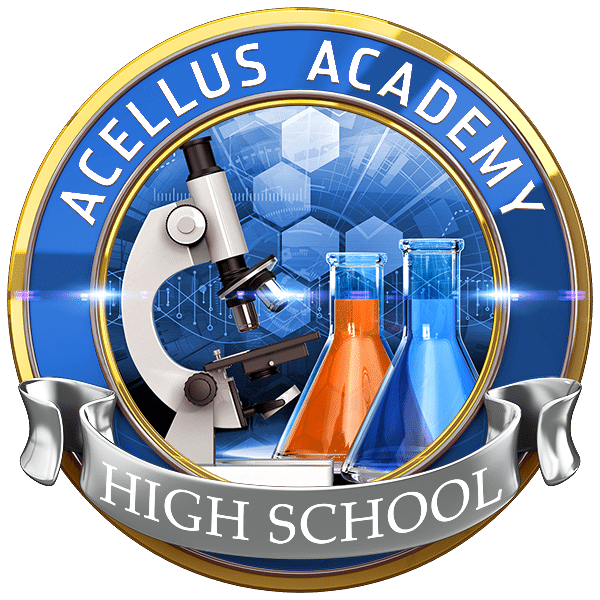
Acellus Science Fair Award
Presented by Acellus
Acellus Science Fair entries are judged by age category and awards are presented for winning projects. Special emphasis is given to those that demonstrate a strong application of the scientific method and have the potential to make a meaningful impact in the real world.

Naval Science Award Program
Presented by the U.S. Navy
The Acellus Science Fair participates in the Naval Science Award Program (NSAP), which is administered by the Office of Naval Research. NSAP is a U.S. Navy and Marine Corps program that encourages our nation’s students to develop and retain an interest in science and engineering.

Hawkins Medal of Science
Presented by the U.S. Army
The U.S. Army and Acellus Academy have partnered to create the Willis M. Hawkins Medal of Science, honoring the legacy of inventor and IST co-founder Willis Hawkins. The award recognizes students with strong potential for real-world impact, aiming to inspire a passion for STEM.
Acellus Science Fair 2024 Winners:
Group A: Ages 5-10
• 1st Place – Raiya Rawlinson
• 2nd Place – Rayhaan Hameem Aubrey
• 3rd Place – Eli Everingham
Group B: Ages 11-13
• 1st Place – Damon Johnson
• 2nd Place – Peter Fenn
• 3rd Place – Eli Thomas
• Honorable Mention – Gideon Merkley
Group C: Ages 14-18
• 1st Place – Hunter Decker
• 2nd Place – Sidhi Tiwari
• 3rd Place – Emily Hall
• Honorable Mention – Eva Sharma
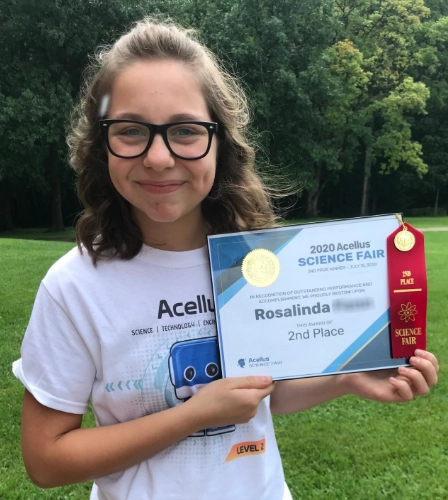
Entries must be submitted by April 23, 2025
Enter the Acellus Robot Dance Contest
Compete with students from around the world in our Robot Dance Contest!
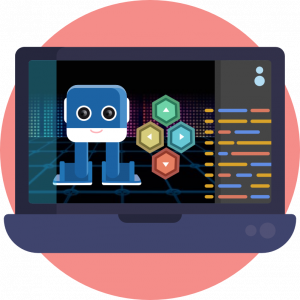
1. Complete the Robotics Dance Programming Acellus Course
To enter the contest, you must first complete the Robotics Dance Programming Acellus course. In this STEM mini-course you will learn how to program the Acellus AC-D2 STEM Robot to perform dance moves. The coding skills that you learn in this course will also prepare you for more in-depth STEM coding in the future.
2. Program an Original Dance for Your AC-D2 Robot to Perform
Use the AC-D2 Simulator, located in the Acellus Gold learning activities, to code a dance program for AC-D2! With over 10,000 possible dance step combinations, there is plenty of room for creativity.

3. Film Your AC-D2 Robot Dancing to Your Program
When you feel like you are ready for your robot to perform, film the robotics dance that you have worked so hard to prepare! Although it is not required, you are welcome to dress up your robot in a dancing costume or create a stage.

4. Submit Your Video
Once you are happy with your robotics dance video, use our online Submission Form to upload your video file or a link to where your video can be viewed. In addition to your video, please provide a comment that includes a write-up describing your robot dance. Your comment and video will be reviewed by our judges.
Awards and Recognition:
Robot Dance Contest Awards
The Robotic Dance Programming Contest develops students’ coding skills in a fun competition which involves critical thinking and problem-solving. After the submission deadline, awards will be presented for the winning entries.
2024 Robot Dance Contest Winners:
• 1st Place – Claudia
• 2nd Place – Cindi
• 3rd Place – Ava
Frequently Asked Questions:
How do I enter the Science Fair?
Is there an age requirement?
Students must be at least 5 years of age to participate. The judging will be categorized by age.
Do I need to come on-site in order to participate?
No, the Acellus Science Fair is an online event! Students are able to enter a project entry in the form of a video. We accept submissions from Acellus students internationally!
Who can enter?
All Acellus students are welcome to enter the Science Fair! This event is not limited to a certain school, but is open to all students on Acellus.
Can I work with a partner?
Only submissions from individual students are allowed. Submissions from teams or multiple students will not be accepted.
Can I enter both contests?
We will be awarding prizes to the winners of the Acellus Science Fair Contest and the winners of the Acellus Robot Dance Programming Contest! Students are encouraged to enter both contests.


